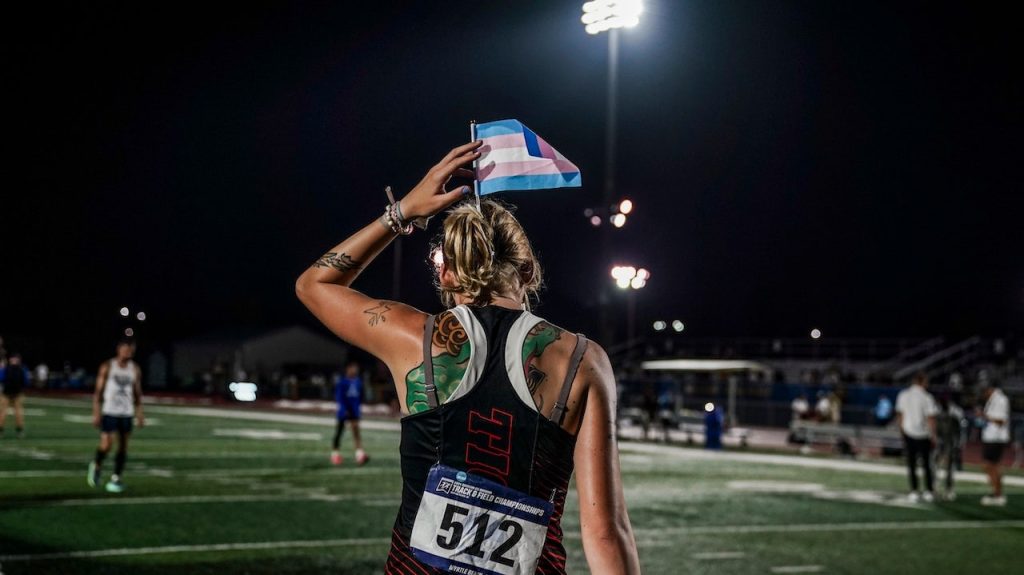Sadie Schreiner, a transgender NCAA Division III track and field athlete, has publicly expressed frustration over the limited transfer opportunities available to transgender athletes in the current socio-political climate. Schreiner, who competed for the Rochester Institute of Technology, highlights the additional challenges faced by transgender athletes seeking to transfer. With approximately half of the U.S. states having enacted legislation restricting transgender participation in women’s sports, Schreiner’s options have been significantly narrowed, not because these laws prevent Schreiner from attending these colleges, but because they prevent participation in women’s sports teams at those institutions. Furthermore, Schreiner alleges that even in states without such laws, college administrations have often intervened to prevent participation, despite the expressed willingness of some coaches to include trans athletes on their teams.
Schreiner’s athletic career has been marked by controversy, particularly following the 2024 NCAA Division III Outdoor Track & Field Championship. While finishing last in the 400m race, Schreiner’s participation itself became a point of contention, raising questions about fair play and the allocation of competitive opportunities for biological female athletes. Earlier in the same month, at the Liberty League Championship Meet, Schreiner won both the women’s 200m and 400m events, even setting a new record in the 400m. However, comparisons to men’s timings highlighted a significant performance gap, fueling the ongoing debate about the inclusion of transgender athletes in women’s sports. The controversy surrounding Schreiner’s participation has intensified the broader discussion on balancing inclusivity with fair competition in athletics.
Schreiner’s concerns extend beyond personal athletic pursuits, encompassing the wider social and political landscape for transgender individuals in the United States. Expressing apprehension about the erosion of transgender rights and the increasing hostility faced by the transgender community, Schreiner emphasizes the urgent need for greater understanding and acceptance. Despite the challenges, Schreiner remains resolute, vowing to continue competing at the NCAA level in 2025 and advocating for transgender rights. This determination reflects a broader movement within the transgender community to resist discriminatory legislation and social biases.
The debate over transgender participation in sports has become a significant political issue, particularly during the 2024 election cycle. President-elect Donald Trump’s pledge to implement a nationwide ban on transgender inclusion in women’s sports has garnered substantial support within the Republican Party. Conversely, the Democratic Party exhibits a more divided stance, with progressive figures like Alexandria Ocasio-Cortez expressing continued support for inclusion, while more moderate Democrats like Seth Moulton have reconsidered their previous positions. This partisan split highlights the complexity of the issue and the varying perspectives on balancing inclusivity with competitive fairness.
The Biden administration’s recent withdrawal of a proposed rule change regarding transgender participation in school sports further complicates the legal landscape. This decision, influenced by ongoing lawsuits and public feedback, effectively postpones federal regulation on the issue, leaving individual states and schools to grapple with their own policies. The Department of Education acknowledged the pending litigation related to Title IX’s application in the context of gender identity, specifically regarding athletic eligibility, as a factor in their decision. This move highlights the legal complexities surrounding Title IX interpretation and its application to transgender athletes.
This controversy stems from the Biden-Harris administration’s broader interpretation of Title IX, which extends its protection against sex discrimination to encompass gender identity, sexual orientation, and pregnancy-related conditions. This interpretation has been challenged by several states, leading to lawsuits and the enactment of state-specific laws addressing transgender participation in sports. The Supreme Court’s decision to deny the administration’s request to enforce its broader interpretation of Title IX in certain contexts further underscores the ongoing legal battle surrounding this issue. The legal challenges highlight the tension between federal guidelines and states’ rights, leaving the future of transgender inclusion in sports uncertain.

